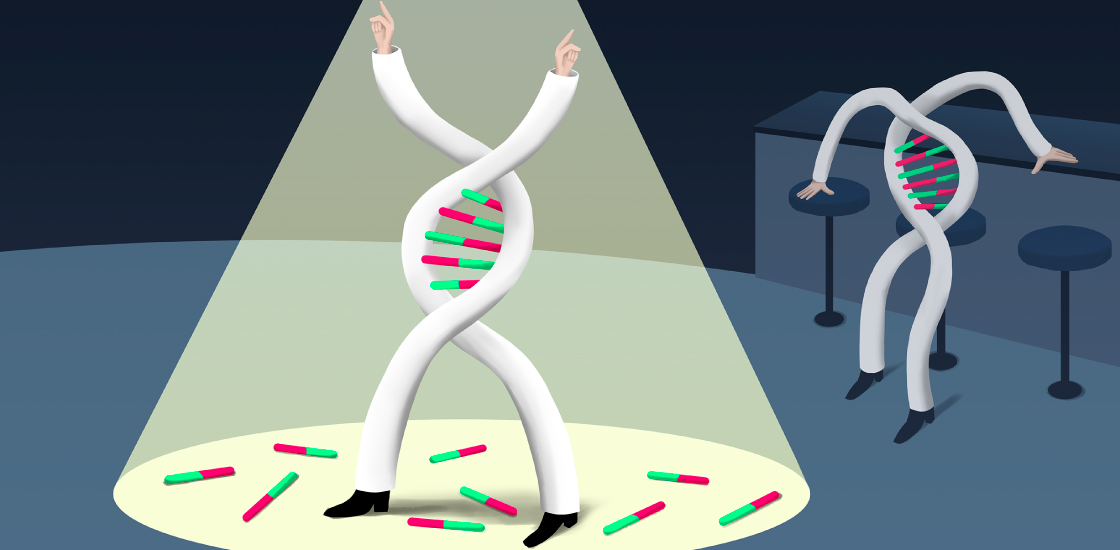Stormy Chamberlain is associate professor of genetics and genome sciences and associate director of the Graduate Program in Genetics and Developmental Biology at the University of Connecticut School of Medicine.

Stormy Chamberlain
Associate professor
University of Connecticut
From this contributor
Angelman syndrome’s silent gene points way forward for autism therapies
Advances in research and help from families have brought scientists to the brink of an effective therapy for Angelman syndrome.

Angelman syndrome’s silent gene points way forward for autism therapies
For accurate results in autism, genetic databases need diversity
We must diversify databases of reference DNA to improve our ability to interpret the consequences of genetic variation.

For accurate results in autism, genetic databases need diversity
Explore more from The Transmitter
Astrocytes orchestrate oxytocin’s social effects in mice
The cells amplify oxytocin—and may be responsible for sex differences in social behavior, two preprints find.

Astrocytes orchestrate oxytocin’s social effects in mice
The cells amplify oxytocin—and may be responsible for sex differences in social behavior, two preprints find.
Neuro’s ark: Spying on the secret sensory world of ticks
Carola Städele, a self-proclaimed “tick magnet,” studies the arachnids’ sensory neurobiology—in other words, how these tiny parasites zero in on their next meal.

Neuro’s ark: Spying on the secret sensory world of ticks
Carola Städele, a self-proclaimed “tick magnet,” studies the arachnids’ sensory neurobiology—in other words, how these tiny parasites zero in on their next meal.
Autism in old age, and more
Here is a roundup of autism-related news and research spotted around the web for the week of 2 March.

Autism in old age, and more
Here is a roundup of autism-related news and research spotted around the web for the week of 2 March.